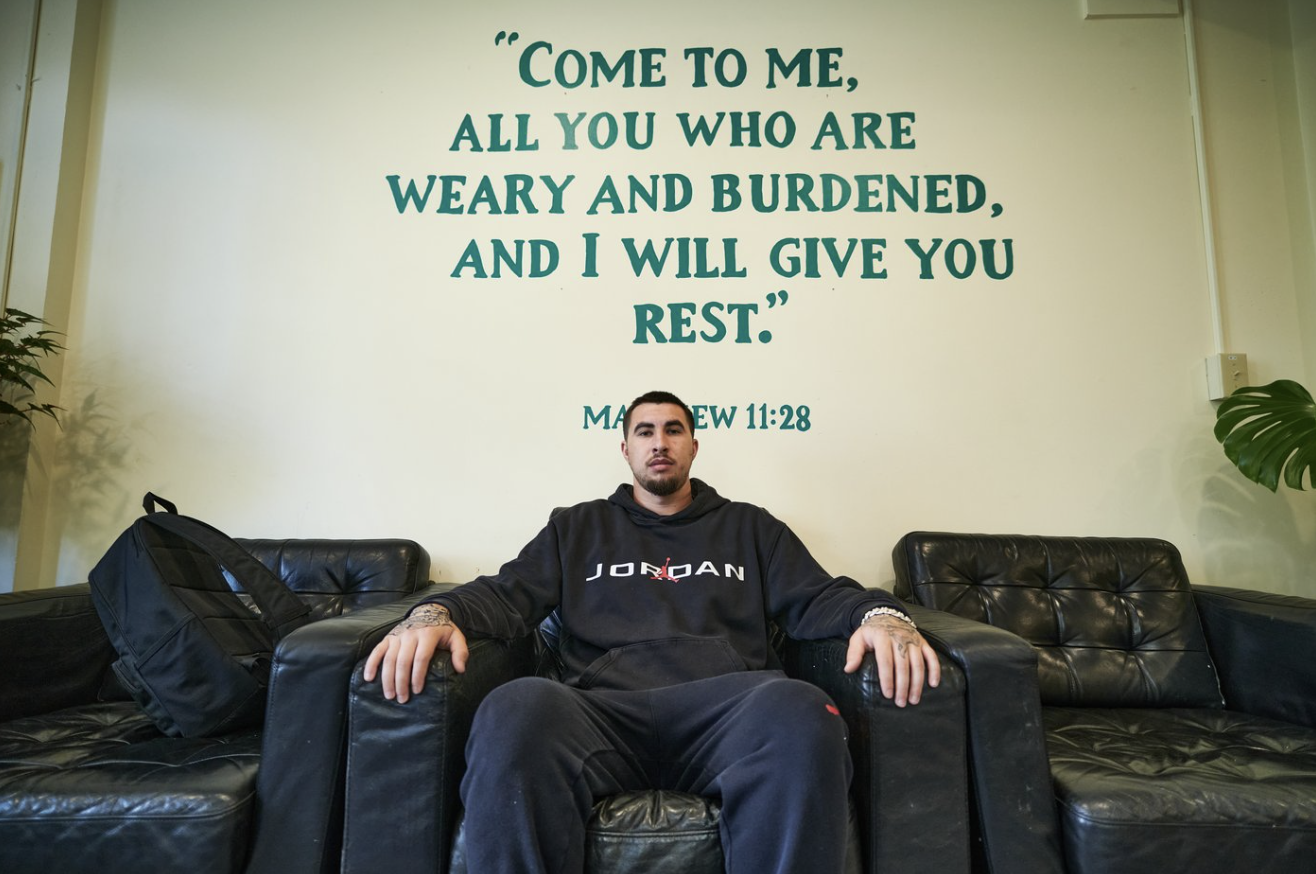VANCOUVER — The Catholic Charities Men’s Shelter has many success stories, and in spite of his relatively short stay at the shelter — around two weeks in 2023 — Danny Bale is one of them.
It is still unfolding.
Bale has a long history with drugs. As early as 12, he remembers doing methamphetamine with his mother. He was something of a drifter, looking for a home in numerous American states, including Washington, Oregon, and Utah. He hoped that moving to Canada would offer a brighter future, but without the right choices, he felt trapped.
“Poverty will follow you anywhere you go if you don’t change it,” he told The B.C. Catholic.
He became homeless after losing his place and all his possessions. A duffle bag was all he had left. He spent six months homeless in the Downtown Eastside and bounced from shelter to shelter. Even when he found a room at a low-barrier shelter, a violent altercation cost him his place.
He was directed to the Catholic Charities Men’s Shelter, and when he walked through the doors, his drug use had started to wane, but he was exhausted. “I was still heavily addicted,” he admits, “but I didn’t want to use anymore.”
He fell asleep on the front foyer sofa. Upon awaking, his belongs were still next to him, and he had been left undisturbed.
For Bale, the Men’s Shelter felt different from other places he had stayed. There were standards of behaviour for the men staying there, and he was impressed by how residents followed the rules. The enforced routine around meals helped him take small steps toward responsibility.
After encouragement from a volunteer, he left the shelter and entered detox. Today, he’s pursuing a career in social work. He has most of the necessary credentials and is now completing the work-hour requirements for a position at RainCity Housing.
He splits his time between occasional farm labour and working as a peer observer who keeps an eye on drug users at a safe injection site.
At the end of the day, he just wants to help people.
“Sometimes you can get lost down the road where you don’t find that better path. A lot of people can get lost in the cracks,” he said. “The loneliness, the sadness … it takes a toll on your mental health. Struggling every day is really hard alone. It makes you pretty sad at the end of the day to know that you’re stuck in a position where you can’t get out of it.”
His studies and life experience have taught him a lot about addiction and homelessness, and he wishes people had more empathy and understanding. Those who are struggling with homelessness and addiction have experienced deep pain and loss. They need hope.
“They can have a better life, or they stay where they are. That’s it,” Bale said.
“People see [the homeless and addicted] as hopeless and lost,” he said, “but … ‘hopeless and lost’ doesn’t mean you should forget them; you shouldn’t count them out. At the end of the day, they’re still people. They still deserve a chance — whether they’re old, young, battered, bruised, beaten, just in bad shape. They still deserve a chance.”
Giving back is important for Bale because he knows how bad things can get. “If I can’t have that faith in other people, then eventually, over time, I will lose it for myself. You can only keep what you have by giving it back,” he said.
“That’s the only way that you can actually help people in the world … if you can give it to someone else and share that thought, whether it’s wisdom, kindness, empathy, passion, or whatever, for somebody who might not have it for themselves,” he said.
“It’s a full circle,” he said. “If somebody decides to stop, then it won’t keep going around.”




